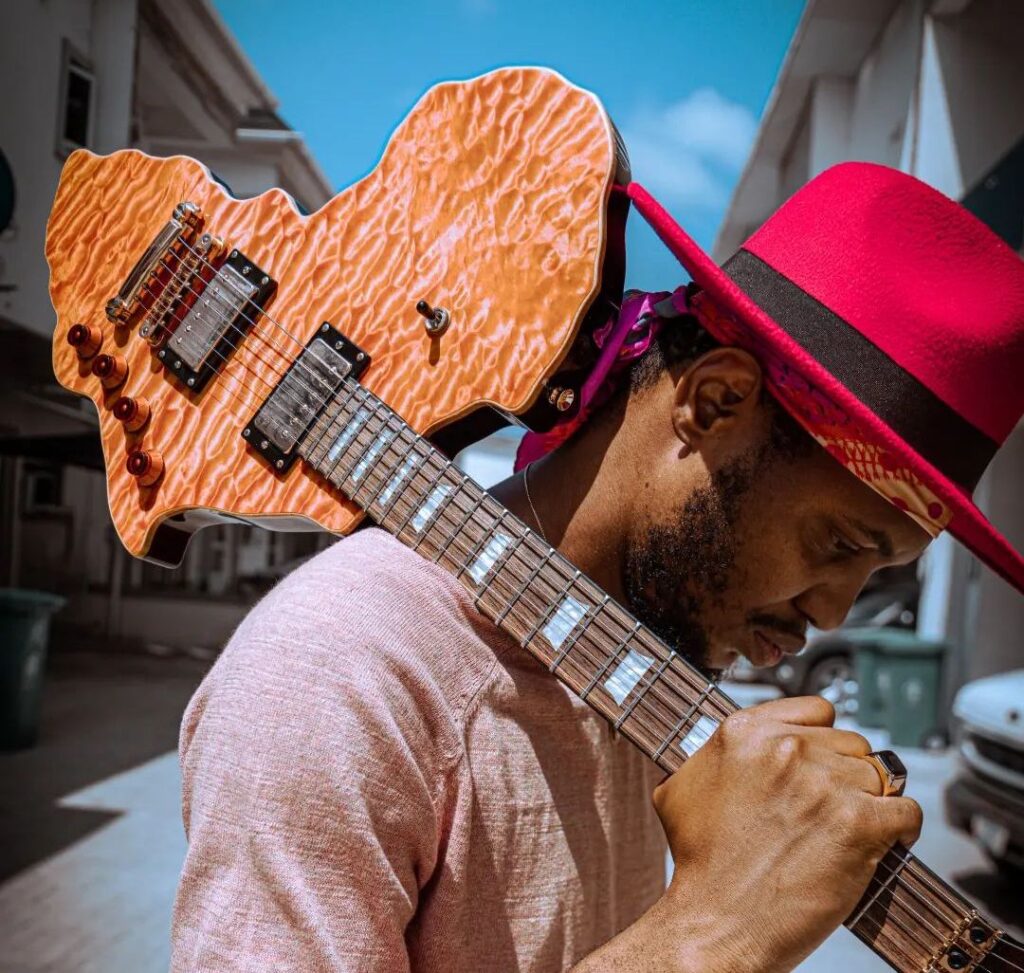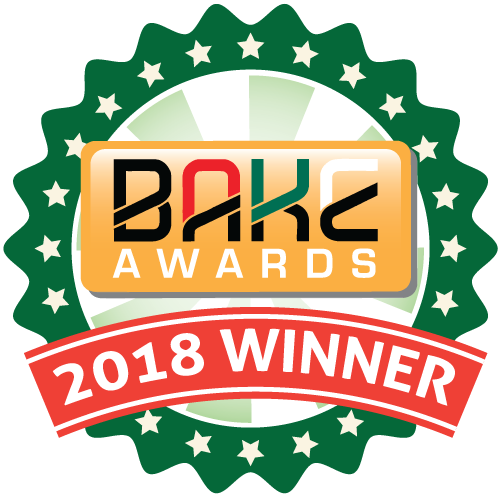
Entertainment
EZEKIEL OLALEYE: NIGERIAN INVENTOR REVEALS WHY HE NAMED GUITAR AFTER NAIROBI
Dr. Ezekiel Olaleye, the founder of Instruments of Africa (IOA) sat down with Buzz Central and talked about his journey of inventing the first African Electric Guitar (AEG) and the reason why he named it after Nairobi City.
Born in Nigeria, Dr Ezekiel Olaleye moved to the US aged only 17 years after his family won the Green Card Lottery. He obtained his Associates degree in Accounting and Bachelor’s degree in Finance at the University of Baltimore, a Master’s of Divinity degree from Lipscomb University, and topped it up with a Doctorate degree in Education with a concentration in Leadership from Liberty University. That’s quite some books.
But why would a man with solid grounding in Accounting and Finance want to study Divinity? “Let’s just say that I wanted to acquire knowledge that touches and impacts people’s lives. Also, my father was a Minister, and I did serve in various capacities in church.
So, I just didn’t want to be just the regular person serving in church, I wanted to do more; I needed to fulfil this desire that I had carried in my heart for many years. It’s not just about pastoring, I could serve as an administrator or in the leadership ministry. My ultimate desire is to serve and connect with people in God’s Ministry,” he says.
Olaleye loves music too – which is why you will find him plucking away his Africa’s first electric guitar. The guitar is his own invention and it wasn’t easy coming up with the invention. “It didn’t just happen overnight. I started designing my first prototype back in 2005. I faced many challenges – but kept working on it,” he noted.
Adding: “The first prototype looked good, but didn’t sound good at all. I guess I didn’t understand the concept of the number system. That’s because everything in an electric guitar has to be precise. That first guitar left me scratching my head in frustration.”
It would take him a good four years to gather himself – and proceed with the project. “I had given up at some point. It was hurting to see the guitar sitting in my room gathering dust after spending so much money on it. I had no desire to go back to it. A couple of people said it didn’t make sense to invest in a guitar when the guitar industry was big and already flooded. I was discoursed – but determined.”
Ezekiel was determined to make sure that Africa becomes an instrument for the world. He wanted an instrument that one could pick and instantly feel a sense of connection to the African heritage. So what did he do? “I went back to the drawing board and finished the second prototype, it sounded better. I was excited and that was the beginning of African Electric Guitar (AEG).”
The guitar needed a name – he named it Nairobi. A few others are named after other major African cities.“I promised not to keep this innovation to myself. I needed to share it with other Africans. So far we have nine guitars named after Nairobi, Accra, Addis Ababa, Cairo, Kampala, Kigali, Kinshasa, Lagos and Soweto,” says Olaleye whose desire is to release an electric guitar for every country in Africa.
On why he decided to name his guitar Nairobi, Olaleye says he has many Kenyan friends. “I look at the books I read when I was growing up, most of it was about Kenya. One of my roommates, Stephen Gitau, a very funny guy, was a Kenyan and we would talk about Kenya and the food. I’ve met a lot of Kenyans in my life, and I felt like Nairobi will be one of the first few cities I call my guitar.”

He noted that the Nairobi guitar is the most intricate in his entire collection in terms of design. “Often when we design the African shape, we have to divide the map into two, but Nairobi is the only guitar we don’t have a bolt on. It’s a complete wood and it gives you this combination of a Stratocaster and telecaster sound.”
Olaleye agrees that converting African instruments like the famous Nyatiti to electric is a challenging task – but notes that he is open to pursuing the theoretical aspects of the instrument. “One of the reasons most African instruments are not fully embraced is because they lack the theoretical aspects that would make it easy to study. I can pick the guitar, the piano because there are notes to read. If we can write notes about that instrument, then people can learn,” he notes.
He is inviting other African innovators to the table of innovation – to invest in these kinds of innovation. “I spent a lot of money on this project, but then I had a nine to five job to finance it. It’s very expensive,” he says – noting that the research and development stage is where most people struggle.
He adds thus: “We need platforms where we can devote funding for research and development, and also have conferences to bring together innovators from every part of Africa and see if people can invest in their ideas, you know, every idea is worth a trillion dollars, if you find the right investors. Every idea may not come to fruition because of the resources, financing, and the opportunities are not there.”
Instruments of Africa recently announced Ghanaian Grammy Award-winning guitarist OT Woode and Nigeria’s Femi Leye and Paul Tao as its brand ambassadors. Kenyans too are invited to the table – he says. “As usual we are open, but we also have to factor in if they can carry the message; someone who can drive the African narrative,” says the inventor who believes that African music will dominate the world by 2030. “Our message is to bring Africa to the forefront of the world stage, let them know that we have something to offer. Anyone who can push that narrative is welcome, we will work with them to make Africa stand out.”

So, how much does the guitar cost? One would like to ask. According to the inventor – the prices range from $999 (Ksh120,000) to $2,000 (Ksh240,000) – prices he considers affordable compared to major brands out there like Fender and Gibson. A big brand like Fender and Gibson would take one back $3,000 (Ksh360,000) and $5,000 (Ksh600,000) respectively.
“Our guitar is still within the margin where anyone can save up to own one. If you want to play a good quality guitar, this is one of the best, and we have a locking piece, which lets you lock your string in place when you tune,” he says. “Ours offers a solution to problems facing society today. So, pin down your ideas and build on them. Remember that vision alone is not enough,” notes
Olaleye who says the design of his guitar is borrowed from a drawing he did when he was only nine years old. “I envisioned it all in my mind as a child,” he says. Adding: “Spend time with people who are better than you, just because you have an idea doesn’t mean you have all the information or resources to make it happen. Connect with people.”
“Every great idea in this world solves a problem. Look at your surroundings and if you see a problem, it could be that the problem exists for you to create a solution. Every innovation should not just be a blessing to the inventor or the innovator alone. It should be something that will transform the world and make it a better place for future generations.”






0 comments